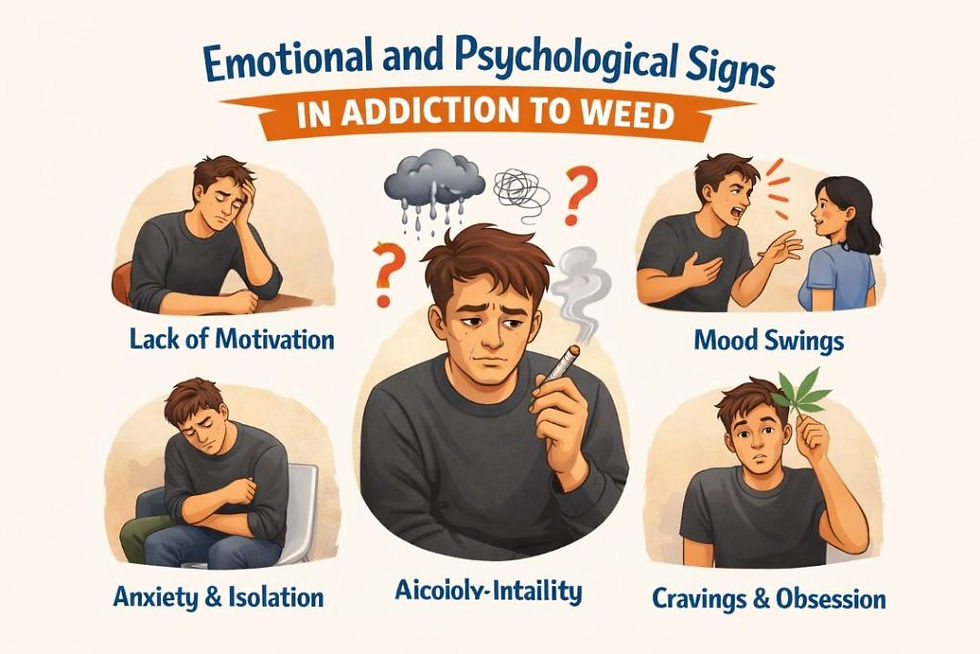Psychosis Treatment: Evidence-Based Care in DeLand
- Felicia Parris

- Apr 1, 2025
- 3 min read
How Medication Supports Mental Health: Benefits, Types, and Management
Mental health conditions such as depression, anxiety, bipolar disorder, and schizophrenia can significantly impact daily life. While therapy and lifestyle changes play a crucial role in mental wellness, medication is often an essential component of treatment. When used appropriately, psychiatric medications help balance brain chemistry, reduce symptoms, and improve overall well-being.This article explores the benefits of mental health medications, the different types available, and best practices for effective medication management.

Benefits of Medication for Mental Health
1. Symptom Reduction and Stability
One of the primary benefits of psychiatric medication is symptom management. Many mental health disorders stem from chemical imbalances in the brain. Medications work by restoring this balance, reducing symptoms such as mood swings, intrusive thoughts, or panic attacks.
For example, antidepressants help alleviate persistent sadness and hopelessness in people with depression, while mood stabilizers prevent extreme emotional highs and lows in individuals with bipolar disorder.
2. Improved Quality of Life
By managing symptoms effectively, medication allows individuals to regain control of their lives. Many people find that with the right prescription, they can maintain jobs, build relationships, and engage in daily activities without being overwhelmed by mental health struggles.
3. Enhanced Effectiveness of Therapy
Medication and therapy often work best together. While therapy helps address underlying emotional and behavioral challenges, medication can stabilize symptoms enough for individuals to fully engage in therapeutic strategies. This combination often leads to better long-term outcomes.
4. Prevention of Relapse
For individuals with chronic mental health conditions, stopping treatment can result in symptom recurrence. Proper medication use helps prevent relapses, providing long-term stability and reducing the risk of hospitalization or severe episodes.
Types of Medications for Mental Health
Different types of psychiatric medications target specific conditions and symptoms. Here are some common categories:
1. Antidepressants
Used to treat depression, anxiety disorders, and certain mood disorders, antidepressants work by increasing neurotransmitters like serotonin and norepinephrine. Common types include:
Selective Serotonin Reuptake Inhibitors (SSRIs) – Prozac, Zoloft, Lexapro
Serotonin-Norepinephrine Reuptake Inhibitors (SNRIs) – Effexor, Cymbalta
Tricyclic Antidepressants (TCAs) – Amitriptyline, Nortriptyline
2. Anti-Anxiety Medications
These medications help manage anxiety and panic disorders by calming the nervous system. Examples include:
Benzodiazepines – Xanax, Valium, Ativan (for short-term use due to addiction risks)
Buspirone – A non-addictive option for generalized anxiety disorder
3. Mood Stabilizers
Primarily used for bipolar disorder, mood stabilizers help prevent extreme mood swings. Common medications include:
Lithium – One of the most effective mood stabilizers
Anticonvulsants – Depakote, Lamictal
4. Antipsychotic Medications
Prescribed for schizophrenia, severe bipolar disorder, and psychotic depression, these medications help control delusions and hallucinations. They include:
Typical Antipsychotics – Haldol, Thorazine
Atypical Antipsychotics – Abilify, Risperdal, Seroquel
5. Stimulants
Used to treat attention deficit hyperactivity disorder (ADHD), stimulants help improve focus and impulse control. Examples include:
Amphetamines – Adderall, Vyvanse
Methylphenidate – Ritalin, Concerta
Best Practices for Medication Management
1. Consult a Mental Health Professional
Medication should always be prescribed and monitored by a psychiatrist or healthcare provider. Self-medicating or stopping medication without guidance can lead to severe consequences.
2. Follow Prescribed Dosages
Taking the right dose at the right time is crucial. Skipping doses or abruptly stopping medication can cause withdrawal symptoms and worsen mental health conditions.
3. Monitor Side Effects
Some psychiatric medications may cause side effects like drowsiness, weight gain, or nausea. If side effects become severe, consult a doctor to adjust the dosage or switch medications.
4. Combine Medication with Therapy
Medication is most effective when combined with therapy, lifestyle changes, and social support. Cognitive-behavioral therapy (CBT), mindfulness, and healthy habits can enhance medication benefits.
5. Regularly Review Treatment Plans
Mental health needs change over time. Regular follow-ups with a doctor ensure that medication remains effective and adjustments are made as necessary.
Conclusion
Medication is a valuable tool in managing mental health disorders, helping individuals regain stability, improve daily functioning, and prevent relapse. However, it works best when combined with professional guidance, therapy, and healthy lifestyle habits.
If you or a loved one are struggling with mental health challenges, DeLand Treatment Solutions offers expert support, personalized treatment plans, and medication management services. Visit DeLand Treatment Solutions or call us today at (386) 866-8689 to learn more about our comprehensive mental health care programs.



Comments